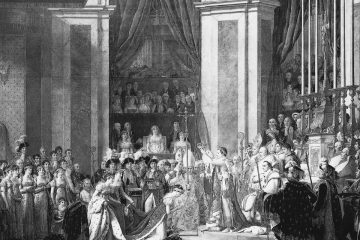What Happened On January 30th?
On the 30th of January, 1948, Mahatma Gandhi, the “Father of India,” went on his evening walk to a prayer meeting, approaching the gates of the Birla House, New Delhi.
Gandhi, 78 years-old, was already very frail due to fasting. A little after 5 P.M., Gandhi’s grandnieces escorted him through the garden, where he was met with small crowd of his followers. All of a sudden, Nathuram Godse, a Hindu nationalist steeped in hate and fanaticism, fired three shots from a rare gun in India, a Beretta M1934.
Gandhi crumpled to the ground, felled by bullets aimed not just at his body, but at the very heart of India’s nascent freedom. Cries of anguish and pain ripped through the stunned silence as the world’s beacon of non-violent resistance lay still.
American diplomat, Herbert Reiner Jr. was the first to seize the assassin, who was sentenced to death on November 15th, 1949. Despite his murderous intent, Mahatma’s two sons, Manilal and Ramdas, pled for a lesser punishment than death, showcasing their characters and their values instilled by their father.
This was not the first time that Godse attempted to assassinate Gandhi, when he and fifteen others tried to knife him four years earlier in May of 1944. However, they were stopped by members of the crowd in doing so. Just as you would expect from the symbol of peace, Gandhi refused to press charges against the criminals.
News of the assassination spread quickly, igniting a wave of grief and fury across the nation. The man who had led India to independence through peaceful defiance, who preached tolerance and forgiveness even in the face of oppression, was now silenced by the very forces he sought to conquer.
But even in death, Gandhi’s values remained prominent, as his message of ahimsa, non-violent resistance, resonated louder than the assassin’s bullets. The nation, though shaken to its core, held firm to the ideals he championed. His death, ironically, served as an important reminder of the fragility of peace.
In the following days, India mourned. Millions thronged the streets to show the love and respect they held for their fallen leader. His funeral procession was joined by over 100,000 Indians who followed the cortege’s six-mile course through New Delhi.
Questions, Comments, Concerns?
Today, we remember the legacy of Gandhi and the impact he had, not only on the nation that he ruled, but on the world itself.
Do you think that Nathuram Godse should have been punished the first time that he attempted an assassination? Or do you think that letting him go free of charge was the right decision?
Let’s discuss below!





